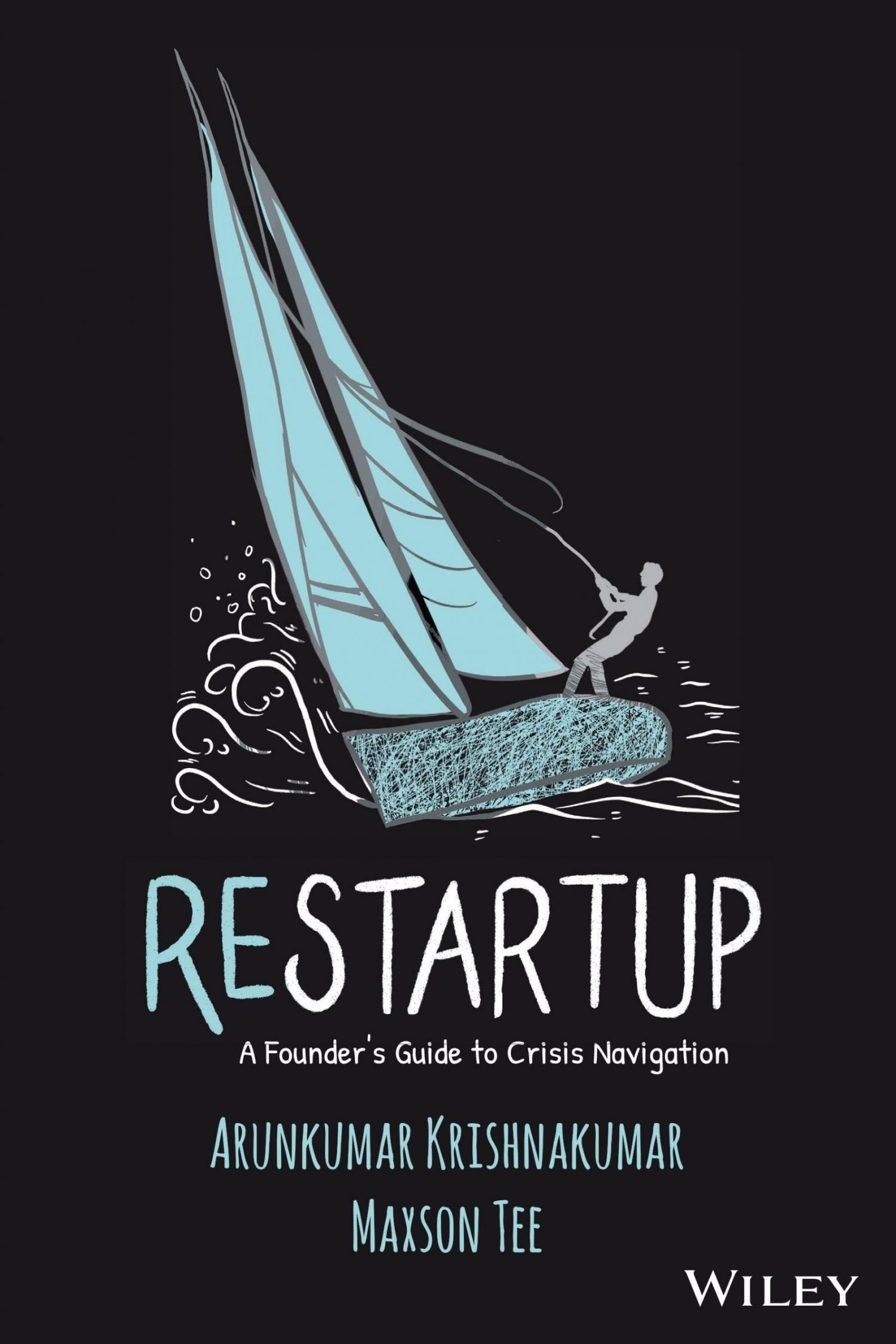While so many are wondering how to deal with the global pandemic and its disastrous effect on businesses, Arunkumar Krishnakumar proposes some real answers to weather the storm, and develop entrepreneurial survival. His new book, Restartup, is a crisis management guide for technology startups and scale-ups.
The tech investor, whose focus is on emerging markets and social impact, imparted his acumen last year in his first book, Quantum Computing and Blockchain in Business.
He is partner at Delphos International, as well as an Onalytica Fintech Influencer, Refinitiv Top 100 Leader for ESG Investments, and a Top 100 Asian in UK Tech.
His VC investments have included FrontM, Paperclip, Swipii, Switchee, Goodbox, Verv. His angel investments include Divido, Funding XChange, Cornerstone and Niki AI. Over three years he has contributed more than 150 articles to Daily Fintech, the second-most read fintech blog in the world.
He also co-hosts one of the top five fintech podcasts, One Vision.
Swagger caught up with Arunkumar, asking him about what things he’s discovered that would help a business bounce back after a global crisis.
What themes does Restartup touch on?
Mental health: why it is important and what founders and investors need to do to make it a critical component in a startup.
Performance coaching: what are the pros and cons of hiring a performance coach.
Tactical steps that startups should use to respond to a crisis: how to cost cut, how to let go of people, how to get lean and mean. Plan medium and long term course of action. Pivoting strategies and thought roadmaps are also discussed.
What does the book offer the reader?
They will understand that crisis management demands more than just strategic thinking. We have interviewed 49 world class CEOs and VCs; learned and shared their anecdotal experiences in the book.
Readers are offered a clear roadmap and mindmap to deal with a crisis.
What advice do you have for business in the current climate?
Stay lean and mean, keep your ears on the ground, rely on data where you have them, stay authentic and genuine to your team and investors.
Why are certain business models better than others during a crisis?
It’s a generalization, but stickier business models like Enterprise tech, SaaS and Subscription models are slightly more sustainable than a transaction based model. A business will still be in trouble if the industry itself is hit. For instance, travel and mobility businesses were hit due to COVID. All business models were hit in those industries. However, if you are a startup in another industry like finance, agriculture or healthcare, even if there is a dip in revenues, you will find that the stickier business models have more predictable revenues during these times.
Why are values and culture important in dealing with a crisis?
Value system is fundamental during a crisis. A crisis is a period that tests the decision-making ability of a founding team. If they have to scale down operations, what will they compromise, and what won’t they compromise, is largely determined by their value system. That in turn determines employee morale and brand. For instance, there were firms, where the management team took a pay cut, all manager level employees took pay cuts, and the foot soldiers at the bottom of the organization were spared. However, there were organizations that let go of people when the management compensation wasn’t massively reduced.
Also, how the layoffs were done also defines the culture of the firm. In many firms, the founding team spent long hours and got through layoffs with one-to-one meetings. In some organizations, the cull happened on zoom calls. There were even organizations where some key managers knew about them being fired only after a press release from the founding team.
What are the key components that a startup should pay attention to be more crisis resilient?
- Build the firm on a sound value system. Your value system decides how you are perceived.
- Get a stellar team at the top; take time to build the core team.
- Expect data driven accountability from all these leaders
- Create a cost conscious culture
- Grow responsibly – growing at any cost might not be sustainable.
- Focus on mental health, of the founding team, but also of the employee pool
- Create a strong support system of investors, advisors and ecosystem members who can all be a rich source of advice and inspiration during a crisis.



















